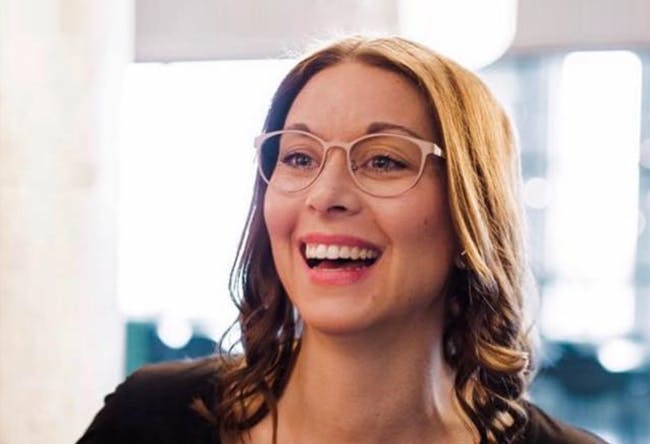'Att återskapa hopp och framtidstro lika viktigt som humanitär hjälp för människors liv och hälsa'
2019-10-03
Three quick questions to Johanna Richardsson, COO of Bring Hope Humanitarian Foundation, about humanitarian efforts to alleviate suffering and rekindle the joy of living and about the International Day of Peace on 21 September.

What is Bring Hope Humanitarian Foundation and what do you do?
– We coordinate and target efforts at the most disadvantaged people in the world, often those living in the aftermath of wars and conflicts, with the aim of saving lives and alleviating suffering. We work with international and local organisations to distribute donated medicines and medical equipment as well as other necessities so that people in conflict areas, refugee camps and poor areas get the help they need. The greatest need is for sanitary products, and thanks to company collaborations, we are doing a good job of meeting this need. The Sustainable Development Goals form the backbone of our work and the Global Compact is its guide.
What have your efforts achieved?
– For instance, over 1.5 million refugees have since 2015 had access to essential medicines, health care and doctors thanks to the efforts of Bring Hope Humanitarian Foundation and our partner organisations around the world. In addition to this, our many programmes, among them The Healing Program and KIDS Bring Hope, aim to give vulnerable, and often traumatised, children and adults the opportunity to regain the joy of everyday living. Our work therefore aims to provide direct humanitarian aid to improve people’s lives and health but also to try to restore the hope and the belief in the future often lost as a consequence of their harrowing experiences.
The theme for the International Day of Peace on 21 September was ‘Climate Action for Peace’. Together with Geneva Diplomatic Circle, Bring Hope Humanitarian Foundation arranged an event to spread more information about the situation and needs in refugee camps around the world, show how the organisations work and create opportunities for collaboration that helps more people.
How can we understand the consequences of climate change from your perspective?
– Climate change is one of the greatest threats to peace and security in the world. Droughts, floods and other natural phenomena are the product of climate change, and resulting every year in millions of people being forced to temporarily or permanently leave their homes. More often than not, the people who have suffered from the consequences of climate change are the same ones also affected by wars and conflicts.
We need to do everything we can in order, in the short term, to stop wars and conflicts and to ensure that those affected receive the help they need, for instance by giving them necessities in the form of medicine, medical treatment, food and water. To reduce the risk of people being forced to leave their homes, we must, in the long term, work to reduce the global climate impact.
Johanna Richardsson was interviewed by Johann Arnljots, researcher at New Republic. ‘Three Quick Questions…’ is a series of interviews conducted by New Republic.